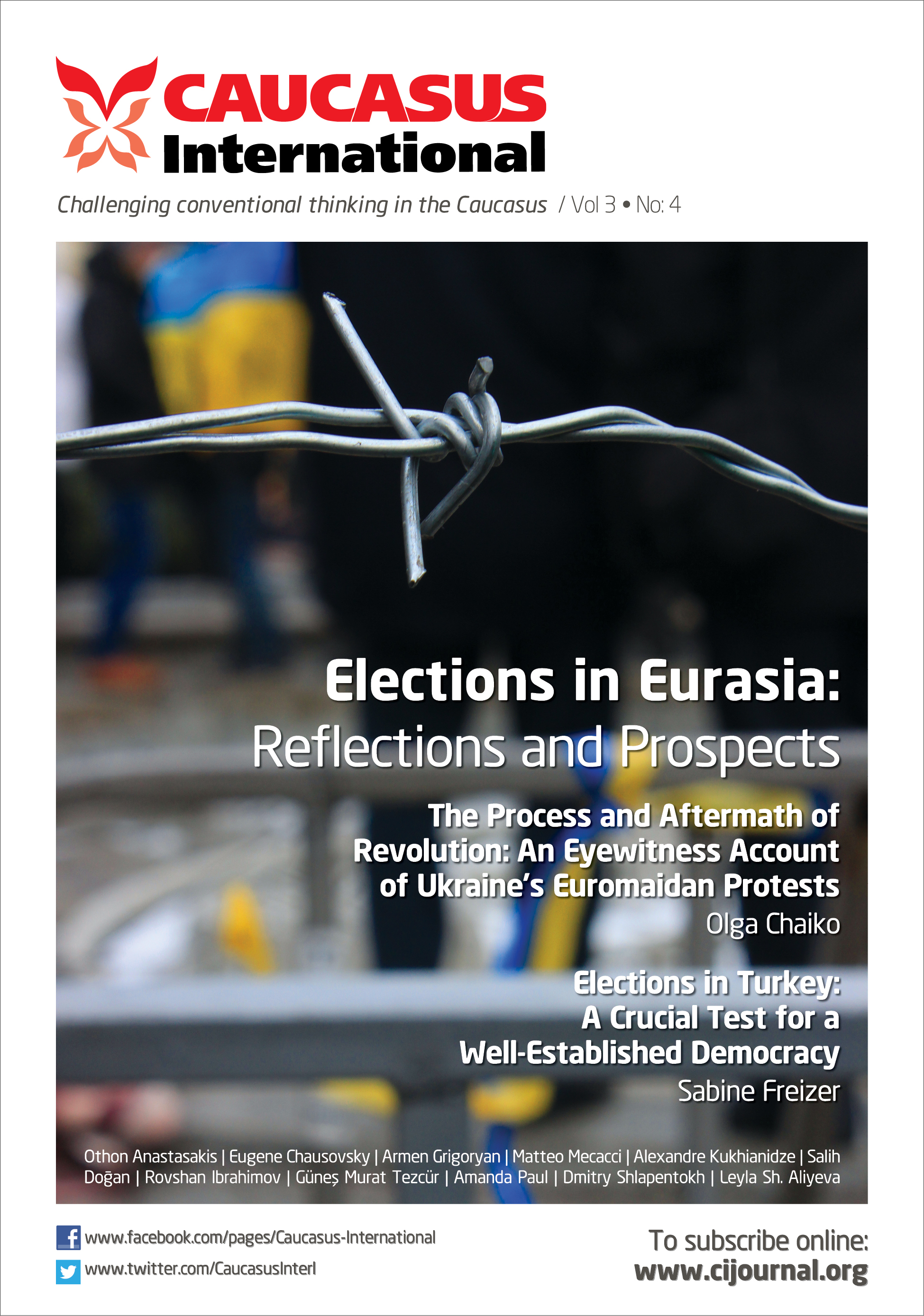Regime Resilience and Pragmatic Governance: The 2013 Iranian Presidential Elections
This article offers an overview of the domestic and foreign policies of the Islamic Republic of Iran (IRI) with a particular focus on the presidential elections in June 2013. Elections in the IRI are characterized by uncertainties allowing for surprising results and considerable shifts in the balance of power. They primarily serve to regulate factional conflict and contribute to the resiliency of the regime. In this regard, the election of Hassan Rouhani as president signifies a return to pragmatism and moderation after the tumultuous years of the Ahmedinejad administration. As the IRI found itself in an economic bottleneck in the face of intensifying international sanctions and mismanagement, Rouhani engaged in foreign policy initiatives resulting in a preliminary agreement with world powers regarding Iran’s nuclear program. At the same time, he faced entrenched power centers limiting his ability to pursue a program of political liberalization similar to the initial years of the Khatami presidency in the late 1990s.
Latest news
- 03/17/2020 Call for Submission: “Non-Alignment Movement and Its Perspective in International Affairs”. Deadline: 1 July 2020 2624 views
Popular articles
- 02/24/2020 The Role of Irredentism in Russia’s Foreign Policy 2535 views
- 02/24/2020 Construction of sub-national identity vis-à-vis parent state: Gagauz case in Moldova 2218 views
- 02/24/2020 The Conflict in Ukraine - The Geopolitics of Separatism and Divergent Identities (Commentary) 2072 views
- 02/24/2020 The Role of the Soviet Past in Contemporary Georgia 2044 views





